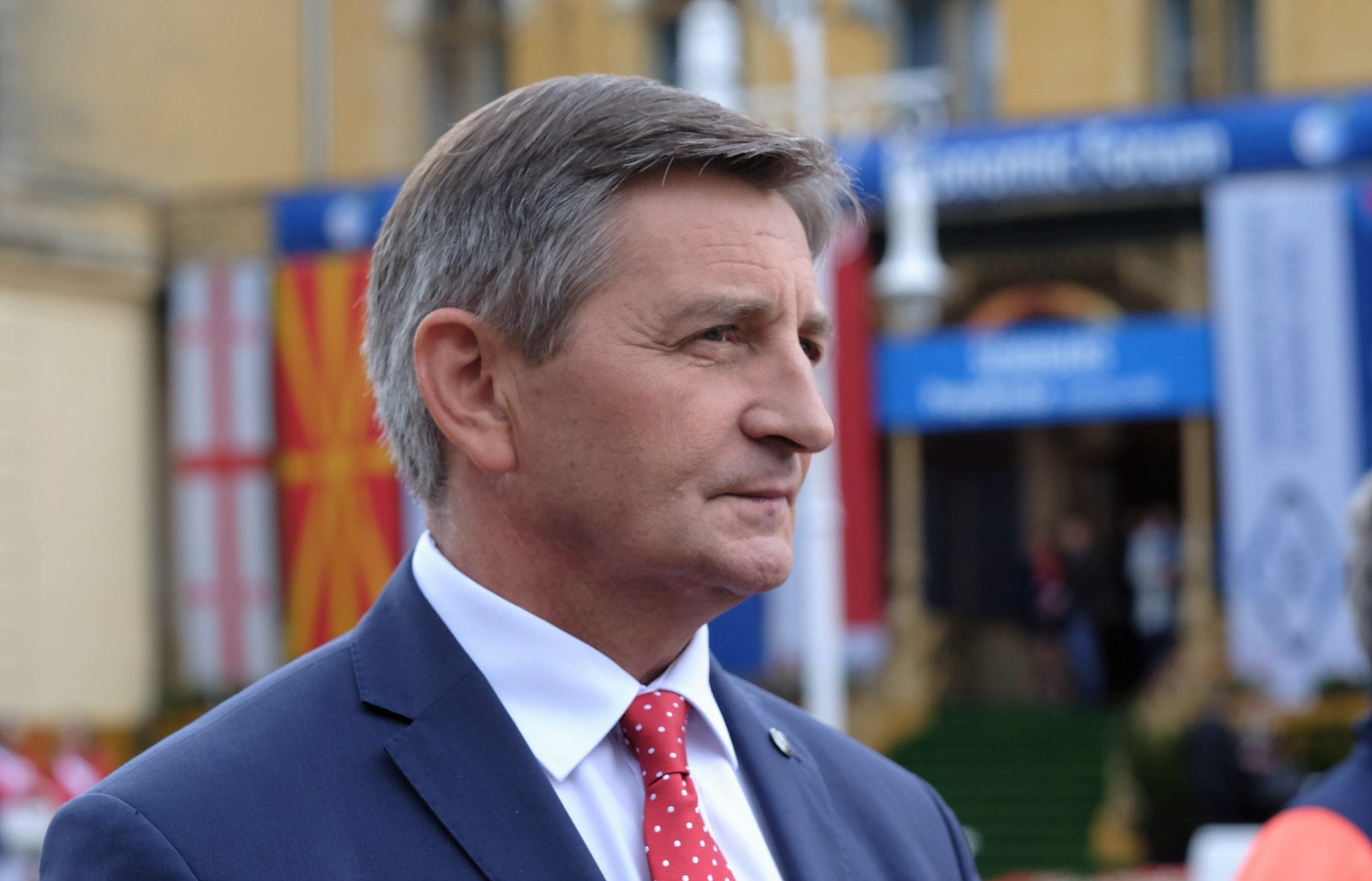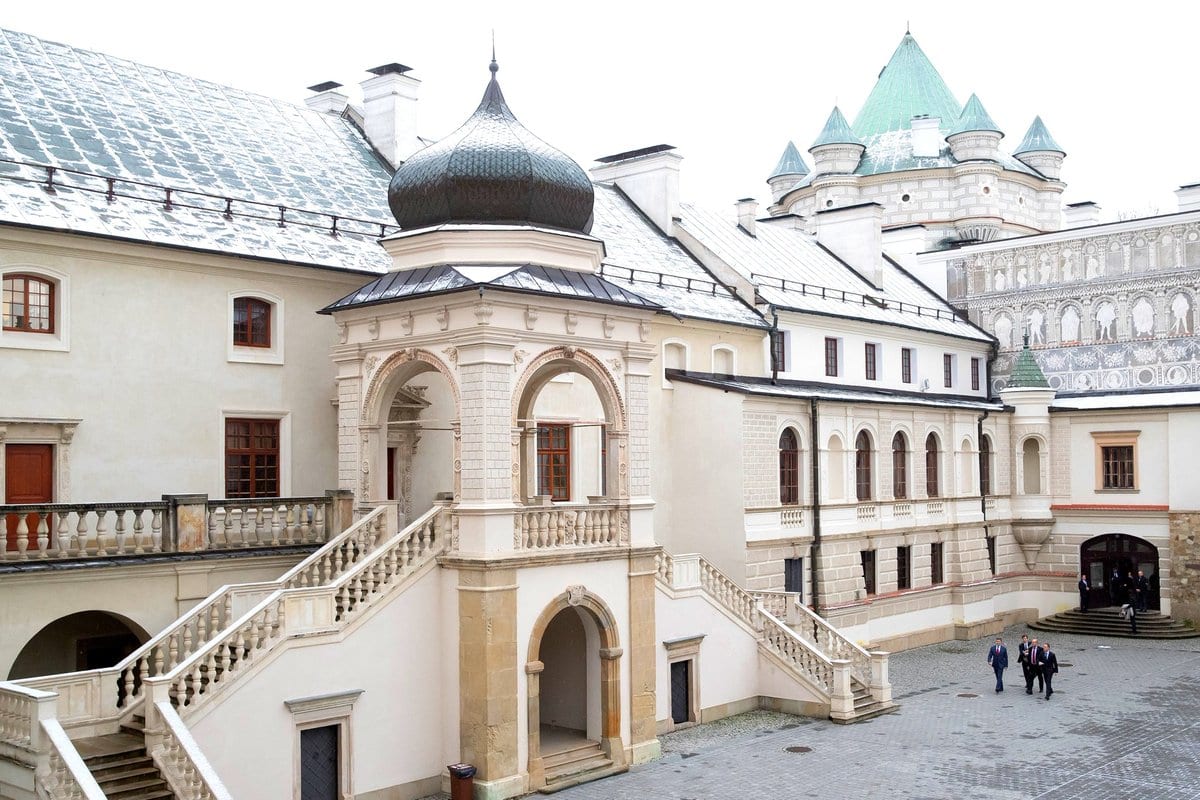For years we have been creating jobs, ground for investment and development of Polish economy through skillful dialogue with countries of Central and Eastern Europe. One of such places of dialogue is the international conference "Carpathian Europe", which will be held on February 16-17 in Krasiczyn near Przemysl, on the initiative of Speaker of the Sejm Marek Kuchcinski.
This will be the 22nd edition of the event aimed at strengthening cooperation and partnership ties between the countries of our region of Europe. The idea of "Carpathian Europe" dates back to 2007. It was then that the first meeting of the parliamentarians of the Carpathian countries was held, initiated by Marek Kuchciński, the then chairman of the Parliamentary Committee on the Protection of the Environment, Natural Resources and Forestry. This project gradually evolved into an important forum where economic interests, transit routes, social needs, environmental cohesion, security issues and ability to cooperate are openly discussed. Today, it is a very serious undertaking that affects the stability of the region and its economic importance.
A good example is the Visegrad Group, which plays an important role during the meetings of the "Carpathian Europe". The model of family support implemented after 2015 in the V4 countries is becoming a stronger alternative to the pro-migration policies of many other European countries, which decided to fight the aging of their own societies in a different way: by opening up to immigration of non-Europeans to Europe. The importance of the V4 on the economic map of Europe is growing. Last week, German Chancellor Angela Merkel came to meet the prime ministers of the Visegrad Group countries - the Czech Republic, Poland, Slovakia and Hungary. In 2017 alone, exports of the economies of Poland, the Czech Republic, Slovakia and Hungary to Germany totaled 138 billion euros - about 25-30% of sales of goods and services abroad. The V4 group is also the most important recipient of German exports. 139.4 billion euros in 2017 is a larger amount than the US (111.5 billion euros), France (105.2 billion euros) or China (86.2 billion euros). Common negotiating positions give more opportunities to individual countries and, among other things, representatives of politics and business of Poland, the Czech Republic, Slovakia and Hungary can talk about such benefits.
Using the potential of V4 and other countries of the region is the basis of the Carpathian Strategy initiated by Poland. The document, signed by the representatives of Poland, Ukraine, Hungary and Slovakia during the XXVIII Economic Forum in Krynica, is to enable closer cooperation between the countries of the region in the future. Ultimately, it is to become an EU macro-regional strategy and facilitate access to significant EU budget resources, give impetus to cooperation in the field of investment and create dedicated solutions for the region. It is worth mentioning that the Polish initiative has a chance to become the fifth macro-regional strategy of the EU and the second mountain one (after the Alpine strategy). In Poland, the Carpathian strategy would cover Podkarpackie, Małopolskie and Śląskie voivodeships.
In order to make "Carpathian Europe" an effective initiative, Poland does not forget about its close neighbors. Therefore, representatives of parliaments, government and local administration, scientists, experts and analysts from Romania and Ukraine will come to Krasiczyn. The importance of these partners can be proved by the Cross-Border Cooperation Program Poland-Belarus-Ukraine. Since the beginning of its operation, which is now 15 years old, it has supported nearly 400 projects with the amount of approx. EUR 400 million. Currently, it is the largest EU cross-border program on the European Union's land borders in terms of budget. Together, the three countries cover an area inhabited by more than 21 million people, almost the size of Poland.
Investment, economic development, cultural exchange, tourism would not be possible without efficient transport. During "Europe of the Carpathians" experts from interested countries will be able to discuss the development of the Via Carpatia project, which is crucial for Central Europe. The transport route is over 7700 km (!!!) and runs through regions inhabited by more than 110 million people. On Polish territory Via Carpatia is 633 km long.
This project is also important because it changes the hitherto prevailing patterns of investment in road infrastructure. Central and Eastern Europe was supposed to be connected to the West. Therefore the routes connecting the North and South of Europe, which are important from our point of view, were somewhat neglected. This opens up another opportunity for entrepreneurs from our region, including Poland. The Baltic-Adriatic corridor, which will connect Gdańsk, Gdynia, Szczecin and Świnoujście in the north with the ports in Copra, Trieste, Venice and Ravenna, also fits into this philosophy. And high-speed rail between Warsaw and Budapest.
During the "Carpathian Europe" there will also be an opportunity to present other transport successes in the region. The Kiev-Lviv-Przemyśl route opened in recent years carries nearly 700 thousand passengers per year. Work is ongoing on Rail Baltica, which will connect Tallinn, Riga, Vilnius and Warsaw. Poland is also working on a project to improve railroad connections with the Czech Republic, Slovakia and Hungary. The next step towards closer cooperation of the Visegrad Group may be the project for construction of the high-speed railroad system.
Carpathians, as every mountain, force us to look beyond the usual horizon. "Europe of the Carpathians" is an initiative that aims to provide real help in the development of Poland, and the dialogue and joint decisions on the international forum bring real benefits for the inhabitants of the region, development of economy, tourism. However, it is impossible to build lasting understanding between nations without awareness of the importance of common history and culture. That is why the panels "Common Heroes of Freedom" and "Paths of Sages - the Future of Central Europe" play such an important role. As you can see, Europe can unite around the Carpathians and benefit from it on many levels. That is why meetings in which Poland plays an important role in binding ideas and tangible projects are so important.
You are cordially invited to participate!
Text Marta Olejnik
 Carpathian Europe, Krynica, photo. mo
Carpathian Europe, Krynica, photo. mo
Draft program of the "Carpathian Europe" conference
Castle in Krasiczyn February 16-17, 2019.
16 FEBRUARY (SATURDAY)
16:00 - 17:15 Panel I "Together Heroes of Freedom"
Moderator: Mr. Maciej Szymanowski, Director of the Wacław Felczak Institute for Polish-Hungarian Cooperation
Panelists:
Mr. Lucjan Fac, Military Historian
Mr. Pavol Mačala, Scientific Association for Personalism from Slovakia
Mr. László E. Varga, Hungarian historian
Mr. Mykola Kniazhytski, MP of Verkhovna Rada of Ukraine, Co-Chairman of Ukrainian-Polish Friendship Group
17:15 - 17:30 coffee break
17:30 - 18:45 Panel II "On the Paths of the Sages - about the future of Central Europe"
Moderator: Mr. Jan Malicki, Director of East European Studies, University of Warsaw
Panelists:
Mr. Sándor Őze, Director of the Institute of History, Catholic University of Budapest
Mr. Paweł Trefler, Rector of the State Eastern European University in Przemyśl
Mr. Peter Káša, Program Coordinator of Collegium Carpathicum at the University of Prešov
Mr. Igor Cependa, Rector of the National University of Transcarpathia in Ivano-Frankivsk
Mr. Stefan Purici, Pro-rector of Stefan III Velikian University in Suceava
Ms. Renáta Tomášková, Pro-rector of the University of Ostrava
18:45 - 19:00 Presentation of the Cross-Border Programme
Poland - Belarus - Ukraine
Ms. Alicja Wosik-Majewska, Program Office Manager
POLAND-BELARUS-UKRAINE in Rzeszów
FEBRUARY 17 (SUNDAY)
10:00 - 11:15 Panel III "History and Tourism of the Carpathians"
Moderator: Mr. Dawid Lasek, Vice President of the Management Board of the Carpathian Euroregion Association
Panelists:
Mr. Dušan Krištofik, Ambassador of the Slovak Republic to Poland
Ms. Adrienne Körmendy, Consul General of Hungary in Krakow
Mr. Vasyl Pavluk, Consul General of Ukraine in Lublin
Mr Władysław Ortyl, Marshall of the Podkarpackie Province
Mr. Paweł Włodarczyk, Honorary Consul of the Republic of Croatia in Kraków
Voice of the discussion:
Prof. Marta Malska, Head of the Department of Tourism at the I. Franko University in Lviv
Mr. Piotr Bies, sculptor, teacher of sculpture at the A. Kenar School of Fine Arts in Zakopane
11:15- 11:30 coffee break
11:30 - 12:45 Panel IV "Infrastructure of Central Europe"
Moderator: Mr Bogdan Rzońca, Chairman of the Infrastructure Committee of the Polish Parliament
Panelists:
Mr. Andrzej Adamczyk, Minister of Infrastructure of the Republic of Poland
Mr. Piotr Naimski, Secretary of State at the Chancellery of the Prime Minister, Government Plenipotentiary for Strategic Energy Infrastructure
Mr. Richárd Hörcsik, Chairman of the EU Affairs Committee of the Hungarian National Assembly
Mr. Árpád Érsek, Minister of Transport and Construction of the Slovak Republic
Mr. Volodymyr Omelyan, Minister of Infrastructure of Ukraine
Voice of the discussion:
Mr. Jan Hudacky, former deputy to the Slovak National Council
15:00 Ceremony of awarding medals by the Speaker of the Sejm in the 5 km run "Winter Carpathian Five"
Castle in Krasiczyn, photo by Pawel Kula



